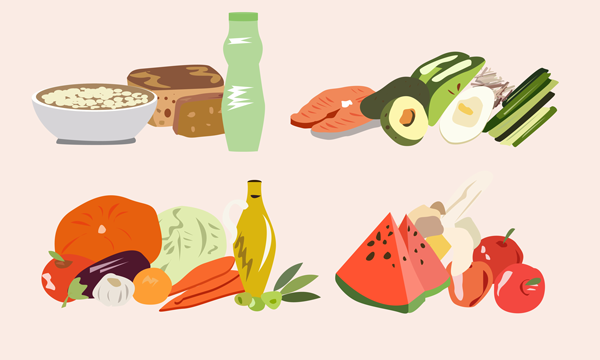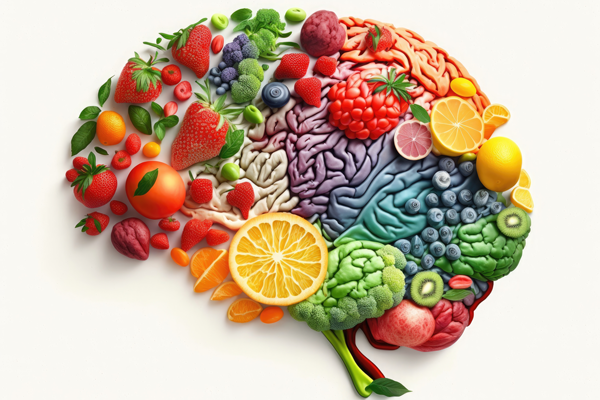Last Updated on August 8, 2023
Proper nutrition. It’s something that we’ve all been told we need to do since we were little kids by our parents, right? But, how many of us actually do it? According to the Center of Disease Control (CDC), fewer than 1 in 10 children and adults eat the recommended daily amount of vegetables. As for fruits, only 4 in 10 children and fewer than 1 in 7 adults take in enough every day. A recent Harvard Medical School study put the daily goal of fruits and vegetables at five servings per day. With those staggering stats, eating a balanced diet is crucial for both adults and children to maintain good health and wellbeing.
For children, proper nutrition is especially important as they are still growing and developing. A well-balanced diet provides the necessary nutrients for their physical and cognitive growth. It also helps them maintain a healthy weight, which is essential for preventing chronic diseases such as diabetes and heart disease later in life.
As adults, proper nutrition is just as important. Eating a healthy diet helps maintain a healthy weight, improves energy levels, and reduces the risk of chronic diseases such as heart disease and certain types of cancer. A balanced diet also provides essential nutrients for overall health and wellbeing. Eating well as adults and parents can also set the tone so that the children around them see just how important it is.

What’s a Balanced Diet?
So, what does a balanced diet look like? It should include a variety of nutrient-dense-food such as fruits, vegetables, whole grains, lean proteins, and healthy fats. These foods provide a wide range of vitamins, minerals, and other nutrients that the body needs to function properly.
Fruits and vegetables are especially important as they provide a wide range of vitamins and minerals that are essential for good health. They also contain antioxidants that help protect the body from damage caused by free radicals. Aim to include a variety of colorful fruits and vegetables in your diet every day. A quick look through Ocean State Job Lot’s Health Essentials section will help you get that value and savings during these tough times of rising prices.
Whole grains such as brown rice, quinoa, and whole wheat bread provide important nutrients such as fiber, B vitamins, and minerals. They are also a good source of energy and can help you feel full and satisfied after a meal. Lean proteins such as chicken, fish, and tofu are important for building and repairing muscle tissue. They also provide important nutrients such as iron and zinc. Healthy fats such as those found in nuts, seeds, and avocado are important for brain function and overall health. They can also help lower cholesterol levels and reduce the risk of heart disease. It’s also important to limit processed and high-fat foods such as fried foods, sugary drinks, and candy. These foods are often high in calories and low in nutrients, and can contribute to weight gain and chronic diseases.
In addition to eating a balanced diet, it’s important to stay hydrated by drinking plenty of water. Water helps regulate body temperature, transport nutrients, and remove waste products from the body.

Other Benefits of a Balanced Diet
When you are eating properly, it’s not just going to help you feel better physically, there can also be a positive impact on mental health. Studies have shown that a diet rich in fruits, vegetables, and whole grains is associated with lower rates of depression and anxiety. On the other hand, a diet high in processed and high-fat foods is associated with higher rates of depression and anxiety. Proper nutrition also plays a crucial role in maintaining a strong immune system. A well-balanced diet provides the necessary vitamins and minerals that the body needs to fight off infections and diseases. This is especially important during times when the immune system may be weakened, such as during cold and flu season or after an illness.
It’s important to start teaching children about proper nutrition from a young age. By introducing a variety of healthy foods early on, children are more likely to develop healthy eating habits that will last a lifetime. It’s also important to involve children in meal planning and preparation, as this can help them feel more invested in the foods they are eating.
As adults, it’s never too late to make changes to your diet and start prioritizing proper nutrition. If you’re not already doing it, think about exercising on a routine basis as that can help you maintain a healthy weight, reduce the risk of chronic diseases, and improve your mood and energy levels.
Remember, it’s not going to happen overnight though. Start by making small changes to your diet and prioritize that physical activity to start feeling your best. Gradually, over time, you will see the change in how you feel and possibly how your body looks. Set yourself achievable goals along the way and reward yourself if you meet them. The ultimate prize will be feeling healthy and enjoying years and years of memorable moments ahead.
